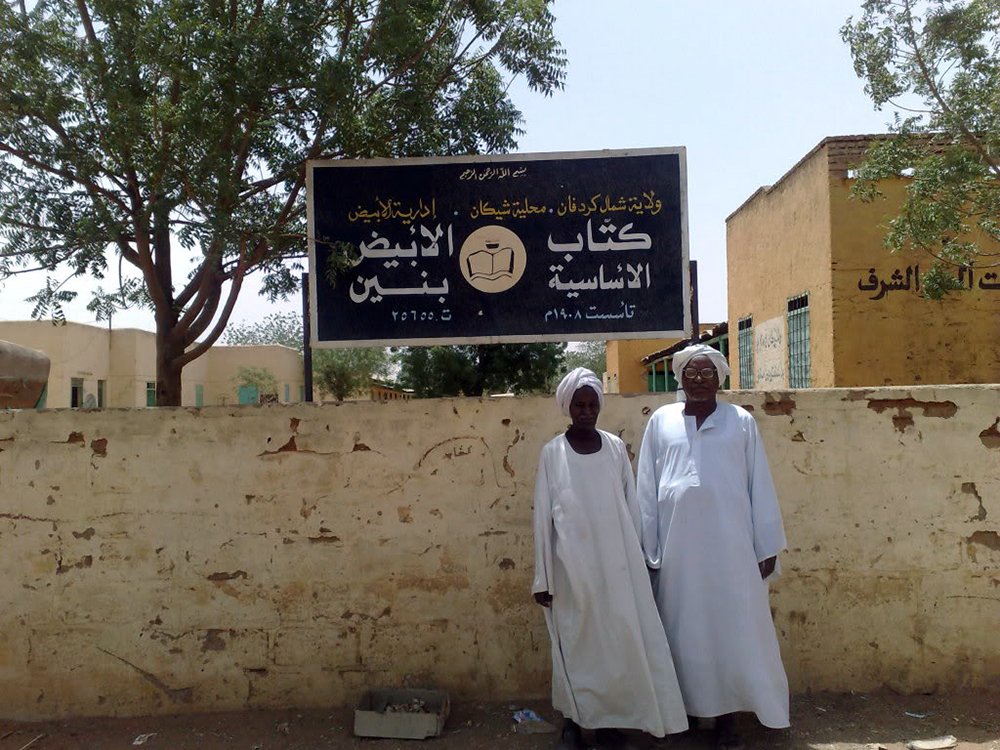
El-Obeid: The Fire of Weapons Burns the Heart of the ``Bride of the Sands``
Ali Taha
"The fire of weapons and the roar of cannons have burned the heart of the "bride of the sands", and some roadblocks and thieves are stealing from the citizens on the outskirts of the peaceful city," says Osman, who has been working in the field of education since the 1980s, describing the situation there. The 75-year-old teacher adds, "I dont know why they target isolated citizens in such a violent manner. North Kordofan state was truly a capital of peace and security, a center for culture and arts, and a model for coexistence among all tribes. Coexistence is still present, but the security structure has collapsed, and tranquility has fled from the sound of weapons and cannon shells, leaving behind a large number of victims. I never imagined that the neighborhoods of the city center would be filled with fighters and deadly weapons, witnessing a fierce war that harmed us."
Tears fell from the eyes of Fathiya, who lives in the "Hasib" neighborhood near the "Souk Um Dafsu" west of the city. She said with a crying voice, "The war has left people dead and houses and hearts destroyed." Fathiya lost her nephew in his prime, a victim of an unknown projectile, while the cannon destroyed the house of her friend, who miraculously survived. Fathiya continues, "We lost our peace of mind, and you cant protect yourself from shells, cannons, and stray bullets even inside your home. Some neighborhoods in White Nile city have become dangerous for citizens, who have become victims of robbery and looting by armed groups. The war has changed the face of our lives, and we suffer not only for food and drink but also from the danger of death from the barrels of guns and weapons aimed at the chests of the poor people."
White Nile, the city known by several names, including "Wad Abu Safia" and "Abu Quba," is living in a state of intermittent war and clashes between the army and the Rapid Support Forces, which attack neighborhoods from time to time. This turbulent situation has negatively affected the residents, who live under pressure and fear. Despite that, they are forced to go to work and engage in other daily activities, including cultural and sports events held in neighborhoods and residential areas. Sports activists confirm that the competitive season is suspended, and there are no official matches. However, there are sports tournaments for football and some other youth activities, attended cautiously by the public, fearing mortar shells and stray bullets that do not distinguish between fighters and innocent civilians.
Qisma, who works in the White Nile market, says, "Last week, we went to work as usual, and when we reached the market, fighting broke out, and we heard the sound of heavy weapons. Anxiety began to creep into us as the fighting expanded. While everyone was waiting for the situation, an anti-aircraft projectile fell in the middle of the market. Even though it didnt harm anyone, it was a decisive decision for us to return home without hesitation. We came back and spent the rest of the day lying on the beds, three times, because of the sounds of weapons."
A while ago, the western and southern neighborhoods of the White Nile city witnessed continuous clashes, leading to the displacement of residents from the "Al-Wahda and Al-Rumayla" neighborhood and those residential areas adjacent to Station 13, the operations headquarters of the former security apparatus controlled by the Rapid Support Forces. "Al-Salam and Al-Saleheen" neighborhood in the south of the city also suffered. However, the conflict has expanded, infiltrating and reaching the heart of the city, the Al-Wahda East neighborhood, Al-Shawihat, Al-Quba, the first and second quarters, and even neighborhoods like Tayba and Al-Qalaa in the eastern part of the city have not been spared from the impact of mutual cannon shells and the deadly Dushka projectiles.
A medical source, who refused to be named, said that the White Nile Hospital and some health centers receive daily injuries from firearms and unknown projectiles, as well as shrapnel. The victims include women, men, and many children, and in all cases, the perpetrator is unknown. The victims come with their families for treatment in the face of a shortage of medicines and medical supplies, which exacerbates injuries and delays recovery significantly.

